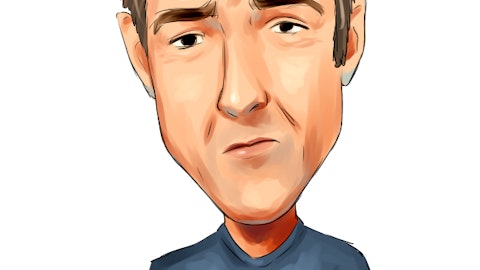But the transition will not take place when Microsoft and Sony wish for it to take place; instead, consumers will dictate when the digital transition takes place. Although console-makers are ready for the transition, many end-users lack the necessary Internet connectivity and speed to download games in a timely fashion; it would be faster to go to Gamestop to buy the game instead of waiting for it to download.
Still, Sony and Microsoft’s incentives are aligned with game publishers Electronic Arts and Activision Blizzard to destroy the used game market — or at least Gamestop’s share of it. In fact, Microsoft’s digital download plan included the ability for publishers to re-sell used games directly to consumers — taking GameStop Corp. (NYSE:GME) out of the equation.
Ultimately, Microsoft wants to create a new and used game market that it controls. Xbox One enables users to trade in games for credits that can then be used towards purchasing other games. Game publishers will get a cut of each sale, but there is no need for Gamestop. Instead, Gamestop’s $9 billion in sales would be split up between game publishers and console makers.
There are other factors keeping customers from embracing the switch to digital — including large stashes of used games, the pastime of browsing games at an actual store, and similar factors — but most users will likely embrace change once the technology takes another leap forward. When console Internet connectivity is ubiquitous and download times are measured in minutes rather than hours, customers will no longer have a reason to shop at Gamestop.
Still at war
Although their incentives are aligned with one another as far as used games are concerned, Sony Corporation (ADR) (NYSE:SNE) and Microsoft continue to fight for control of the console market. Sony’s PlayStation 3 edged out Microsoft’s Xbox 360 with 78.4 million units sold worldwide, just over 1 million more than Xbox 360 sales.
Meanwhile, sales of Sony’s PlayStation Portable boosts its presence in a market in which Microsoft does not compete. Still, Sony’s product is outsold by two Nintendo Co., Ltd (ADR) (OTCMKTS:NTDOY) products — Ninendo DS and Game Boy Advance. The PlayStation Portable is unlikely to gain top share in this market, especially if Microsoft decides to enter the market.
Sony’s decision to enable backward compatibility is just another blow in the battle between console-makers. But, eventually, cooler heads will prevail and a focus on profitability will ensue.
Bottom line
So, while Gamestop may have been a great bargain when it was trading for just four or five years’ worth of free cash flow, investors who pay today’s rate of about a decade’s-worth of free cash flow may be cutting it close on a company that is sure to be in a secular decline in ten-year’s time. I would recommend waiting for the price to fall quite a bit before making another go at Gamestop.
Ted Cooper has no position in any stocks mentioned. The Motley Fool owns shares of GameStop and Microsoft. Ted is a member of The Motley Fool Blog Network — entries represent the personal opinion of the blogger and are not formally edited.
The article The Bulls Are Right So Far on Gamestop, but Will the Party Continue? originally appeared on Fool.com is written by Ted Cooper.
Copyright © 1995 – 2013 The Motley Fool, LLC. All rights reserved. The Motley Fool has a disclosure policy.





